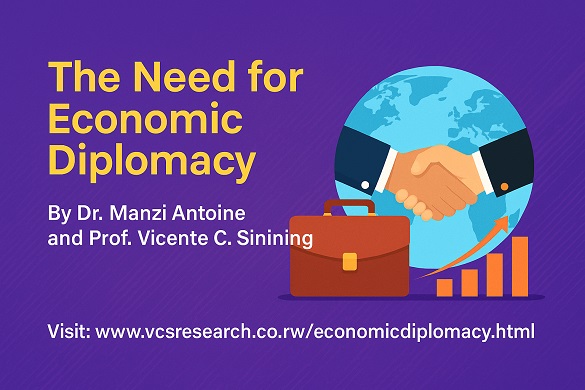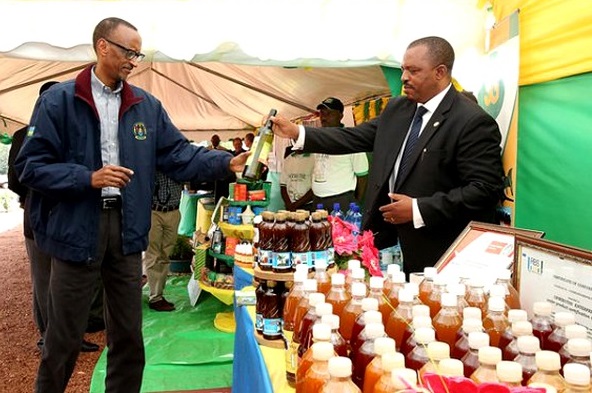
NOTE: This paper was published in Cywilizacja i Polityka an international journal in Poland, year 2022, ISSN1 17-5641.
Abstract
The authors sought to provide an understanding of Economic Diplomacy in Rwanda, why is it necessary, what it will deliver, and how it should be delivered. They argued that Economic Diplomacy is crucial to attaining the country's economic growth targets. It boosts efficiency while working as a group (government ) and not as an individual (Ministry/Institutions). They concluded that Economic Diplomacy will support Rwanda to coordinate important economic activities, avoid duplication of work, and identify gaps. Economic Diplomacy has planned activities until 2020. A revision is a must as we enter 2022 to present the 2nd Economic Diplomacy Strategy to follow up these systems and adjust to the NST1 progress until 2024.
Introduction
The Government of Rwanda (GoR) has a clear vision: to become an Upper-Middle-Income country by 2035 and a High-Income Country by 20501. For this, it targets over 9% GDP/capita growth until 2050 necessitating a 17% annual export growth to 2035- and two-times growth in private savings and investment by 2025 and three-times by 20351. The NST1 indicates that this growth will be driven by trade and investment; hence Rwanda needs to have an efficient trade and investment strategy.
The implementation of the actions that lead to these targets is scattered across many players. When these actions are not linked or coordinated, efficiency suffers and there is a redundant use of human and financial resources. To combine efforts on the industry, trade, investment, and related foreign affairs, Rwanda needs an Economic Diplomacy program aimed at aligning the country’s foreign and domestic economic policy actions to increase efficiency and achieve its economic growth targets.
Economic Diplomacy boosts efficiency while working as a group (government) and not as an individual (ministry/Institution). It will help Rwanda coordinate its activities and avoid duplication of work. A key feature of the program is that it does not create new activities but complements the ones in place to make them more efficient. The authors came up with a proposal for an Economic Diplomacy program which is divided into three phases: assessment, strategy, and implementation. This article captures the findings collected during the research and will base on a proposal to the Government of Rwanda for a strategy decision and action plan.
The authors came up with a proposal for an Economic Diplomacy program which is divided into three phases: assessment, strategy, and implementation. This article captures the findings collected during the research and will base on a proposal to the Government of Rwanda for a strategy decision and action plan.
Click here to download the full paper.

President Paul Kagame of Rwanda and Dr. Sina Gerard of Sina Gerard Enterprises Urwibutso of Rwanda.













